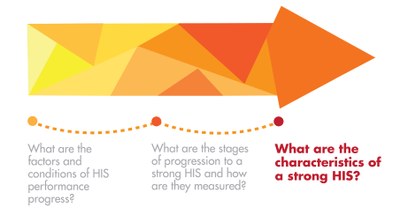What Are the Characteristics of a Strong Health Information System?
 fs-18-294.pdf
—
PDF document,
1,186 kB (1,215,442 bytes)
fs-18-294.pdf
—
PDF document,
1,186 kB (1,215,442 bytes)
Author(s): MEASURE Evaluation
Year: 2018
 Abstract:
Abstract:To safeguard and promote the health of its citizens, a country must identify health needs within its borders, prepare strategies to address those needs, and gather resources to enact plans. A country’s national health information system (HIS) provides the health data it needs to plan and implement a health strategy.
A strong HIS must then use available data to meet health goals. It should collect, manage, analyze, and disseminate health data in a timely manner, so that managers can track progress and provide feedback on HIS performance to improve data quality and use for making sound decisions. To do all of this, an HIS must be well-defined, comprehensive, functional, adaptable and scalable, and resilient.
MEASURE Evaluation—a five-year cooperative agreement funded by the United States Agency for International Development (USAID)—works with countries to strengthen their HIS so that they have those four attributes.
In July 2014, USAID asked MEASURE Evaluation to build a base of evidence showing which investments in HIS management, governance, and performance are effective and useful. In response, the project developed the HIS Learning Agenda. The purpose of this Learning Agenda is to explore what works to strengthen HIS by addressing a series of questions. This brief addresses our answers to the following question: What are the characteristics of a strong HIS?

What are the factors and conditions of HIS performance progress?
What are the stages of progression to a strong HIS and how are they measured?








